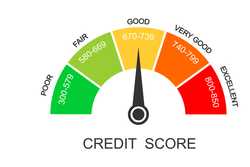Tax Prep Checklist: Documents to Gather Before Filing

Our evaluations and opinions are not influenced by our advertising relationships, but we may earn a commission from our partners’ links. This content is created by TIME Stamped, under TIME’s direction and produced in accordance with TIME’s editorial guidelines and overseen by TIME’s editorial staff. Learn more about it.
Whether you file your own taxes or hire a tax professional to do the job on your behalf, there are certain documents you will need to gather in advance. Having these documents handy will expedite your tax-filing process or save you money if you’re paying a tax professional by the hour. You will need supporting documents relating to:
The first things you will need before you can file your tax return are the full names and Social Security numbers—or other taxpayer identification numbers—of everyone who will be named on your Form 1040, U.S. Individual Income Tax Return. If you have a spouse or dependents, you will need their information as well. If you file your tax return using online software, this information will likely be saved for use in future years. If you use a tax preparer, you will need to provide them with your Social Security cards and a government-issued ID card.
There are several tax documents relating to various sources of income you may have received throughout the year. The sender will mail one copy to the IRS and one to you as the taxpayer at the beginning of tax season, so be sure you enter the information exactly as it is reported on the form. Here are some documents you may receive:
The most common tax document relating to your income is Form W-2. If you work a standard job for an employer, your employer will mail you a W-2 at tax time or offer it as a download on your employee benefits website. The W-2 summarizes your income and withholdings throughout the tax year. You will need to enter all of this information on your Form 1040, and it will help to calculate your refund owed or taxes due.
With the rapidly booming gig economy, another common tax form for income is the 1099-NEC. You can expect to receive this form if you have a contract or side gig bringing in more than $600 per year. The company that pays you will issue the 1099-NEC. The information you receive and enter on your tax return will flow through to Schedule C, Profit or Loss from Business (Sole Proprietorship) of the Form 1040.
Other common income forms you might encounter include Form 1099-INT for interest income in your bank account and Form 1099-S if you sold any real estate property during the year. Any 1099s or W-2s you receive need to be kept for your tax return preparer—or yourself, if you file your own tax return.
There are several other tax documents you may receive during tax season. If you are eligible for certain tax deductions or credits, these forms will provide you with the support you need to claim them. Here are the most common deduction- or credit-related tax forms:
Form 1098 lists the mortgage interest, taxes, and mortgage insurance premiums you have paid to your lender throughout the year. Form 1098-C lists any charitable contributions you made of big-ticket items, such as vehicles, boats, and airplanes. If you itemize your deductions, the information from these forms will be important. Additionally, if you plan to itemize your deductions, you will need to keep copies of tax receipts, medical bills, charitable contributions, and retirement contributions.
Form 1098-E reports the total amount of student loan interest you have paid during the year. You may be eligible to deduct this amount, up to $2,500, on your tax return, even if you do not itemize your deductions. There are modified adjusted gross income (MAGI) limitations on this deduction, and you cannot qualify if your tax status is married filing separately.
Form 1098-T lists educational expenses you have paid to an eligible educational institution that may qualify you for certain tax credits. The two major educational tax credits that can be calculated from your Form 1098-T are:
If you work for an employer, your federal taxes will be withheld and remitted to the IRS by your employer on your behalf. The amounts will be withheld from your check each pay period, and you can see the total amount that has been withheld year-to-date on your paystubs. Your Form W-2 will include your federal tax withholding information.
If you work a side gig or contract job, you will have to pay your own income taxes throughout the year. There are four quarterly estimated tax payments due for every tax year, which you can pay using Form 1040-ES vouchers or online at the IRS website. If you paid quarterly estimated taxes, you will need to report the amounts and dates paid on your tax return. Be sure to keep appropriate records of your tax payments.
If you paid local income tax, property tax, or sales tax on big-ticket items in the year, save those receipts. You may be able to claim them as itemized deductions. Note that the state and local tax (SALT) deduction for 2023 is limited to $10,000 (or $5,000 if married filing separately).
If you’ve ever been the victim of a tax-related identity theft, you will have to submit an IRS identity protection PIN along with your tax return filing. The IRS will mail you a CP01A notice with your PIN at the beginning of tax season. Keep the notice with your tax documents, because you will need to enter the PIN at the bottom of your tax return near your signature.
Having your ducks in a row prior to tax season will save you precious time. Whether you file your own tax return or outsource the task to a tax professional, be sure to have all your tax documents on hand. You can also save yourself money at tax time by using tax-planning software, such as Playbook. For tax-filing softwares, consider using TaxSlayer, TaxAct, or TurboTax.
With Playbook you can maximize your tax benefits by creating a financial plan to optimize your financial investments. Playbook helps you get the most out of your tax-advantaged retirement and investing accounts based on your life goals. Pricing starts at just $19 a month.
TaxSlayer is a cloud-based software that lets you file your own tax returns with a 100% accuracy and maximum refund guarantee. It has all the forms necessary to file your federal and state income taxes. There are several options, from $0 for a basic 1040 to $64.95 for self-employed tax returns requiring a Schedule C. State returns are an additional fee on all but the basic option.
TaxAct is an online software with which you can file your own tax returns with a $100,000 accuracy guarantee. If you get a lower refund or higher tax liability calculated by another software, it will pay you the difference up to $100,000 plus software costs. There are several options, from $0 for a basic 1040 to $99.95 for self-employed or sole proprietor tax filers. You can also add Xpert Assist—TaxAct’s version of expert help—for $39.95. State returns are an additional fee on all options.
Intuit’s TurboTax offers both online and desktop tax-filing software. You can file your own tax return, file with the assistance of a tax expert, or use the full-service option where a tax professional files on your behalf. TurboTax offers a lifetime guarantee on the accuracy of its calculations. There are several options, from $0 for a basic 1040 to $129 for self-employed tax filers when you file your own taxes. Assisted options range from $99 to $219, and full-service options range from $219 to $409. State returns are an additional fee on all but the basic free option.
Having your previous year’s tax return on hand is a useful tool to compare your two tax returns. Although it’s not required to file your taxes, it can help you identify if there is anything you may have missed from the current tax year.
If you have a 401(k) through a current or previous employer, you will need that documentation on hand when you file your tax return. Contributions are deductible, and distributions are taxable, so you’ll need to report that information on your taxes. If you only have a 401(k) with your current employer, your 401(k)-related tax information will appear in Box 12 on your W-2. However, you should always compare this information with your year-end 401(k) statement.
Although you do not have to report your Roth individual retirement account (IRA) contributions on your tax return, it is important to keep good documentation of your contributions for years to come. You must have had a Roth IRA open for five years before you can take a tax-free withdrawal of earnings on the account. With a Roth IRA your actual contributions are made after tax and eligible distributions are tax free. As long as you know your exact contributions each year, you will know the amount you are able to withdraw tax free at any time. This is important in case you have a change in circumstance that requires an early withdrawal of retirement funds.
The information presented here is created by TIME Stamped and overseen by TIME editorial staff. To learn more, see our About Us page.



